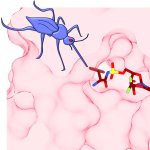
News • New treatment approach
'Self-destructing' parasite: The solution for drug-resistant malaria?
Over the last 50 years, malaria parasites have developed resistance to seven drugs, but a new way to identify future antimalarials holds promise.

Over the last 50 years, malaria parasites have developed resistance to seven drugs, but a new way to identify future antimalarials holds promise.
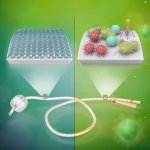
Hospital-acquired infections are dangerous for patients and costly for clinics. A novel surface treatment could help improve the safety of medical devices and ease the economic burden.

In patients with serious and long-term Covid-19, disturbed blood coagulation is often observed. Now, Swedish researchers found a connection between harmful amyloid production and Covid-19 symptoms.

SARS-CoV-2 depends on the broadly antiviral interferon-induced human transmembrane proteins , to enter human cells and replicate inside them.

Two years after infection with COVID-19, half of patients who were admitted to hospitals still have at least one symptom, according to the longest follow-up study to date.

Dormant herpesviruses induce their reactivation via a previously unknown cellular mechanism mediated by a viral microRNA, Würzburg researchers discovered.
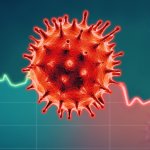
In 2020 and 2021, the death toll associated with Covid-19 was approximately 14.9 million, according to the World Health Organization. However, the global distribution has been far from equal.

Cognitive impairment as a result of severe Covid-19 is similar to that sustained between 50 and 70 years of age and is the equivalent to losing 10 IQ points, scientists found.

Six in ten people with Covid-19 still have at least one symptom a year later, a new study has found. Furthermore, symptoms that don’t clear up after 15 weeks are likely to last at least a year.

Using mass spectrometry and chromatography techniques, UK researchers have developed an approach to predict infection severity among Covid-19 patients, as well as potential outcomes.

A global analysis of nearly 6 million Covid-19 deaths finds an increase in mortality at weekends compared to weekdays. Bureaucratic and reporting delays alone do not explain this, researchers report.

Accurate home testing could be used for a wider range of illnesses, as new research shows the capability of smartphone-powered tests for Dengue Fever.
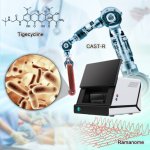
When treating acute infections, health care providers must quickly identify the best antibiotics for fighting the infection. An automated system provides swift, accurate results for determining the best antibiotics at the right dose.

By comparing the infectious viral load caused by ancestral SARS-CoV-2 as well as by the Delta and Omicron variants, scientists highlight the benefits of vaccination.
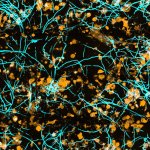
A chip-based infection model developed by Jena researchers enables live microscopic observation of damage to lung tissue caused by the invasive fungal infection aspergillosis.

A new study enables developers to determine vaccine safety via smart sensors that measure objective physiological parameters. This could end the reliance on subjective reports of study participants.

The COVID-19 testing device can detect coronavirus infection in as little as 30 seconds as sensitively and accurately as a PCR test.

A platform for studying how the human immune system responds to hepatitis C infection by combining microfluidic technology with liver organoids could speed the hunt for a vaccine.

The new 3D-printable mask design promises easy breathing for users while maintaining similar levels of protection against pathogens found in N95 and surgical masks.

Combining questions about a person's health with data from smartwatch sensors, a new app can predict within minutes whether someone is infected with COVID-19.

COVID-19 measures such as school closures and ‘high-traffic and mixing’ areas had the strongest association, providing clues for new intervention approaches.

A newly discovered structure of chain-mail may explain the success of C.difficile at defending itself against antibiotics and immune system molecules.
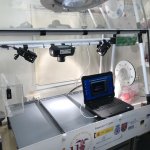
The tool has made it possible to detect SARS-CoV-2 in exudate from symptomatic patients with a sensitivity of 100% and a specificity of 87.5%

A new kind of bone implant reduces the chance of infection, and therefore significantly decreases implant failure rates.
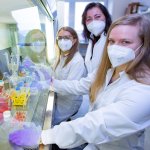
A new study offers hope against liver cancer: A vaccine proved to be safe and effective protection in premalignant and malignant liver diseases in preclinical mouse models.